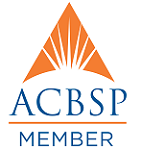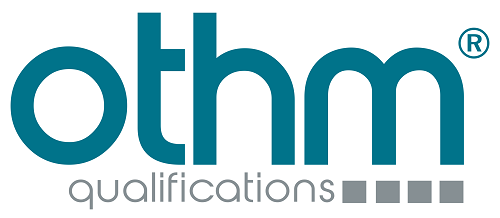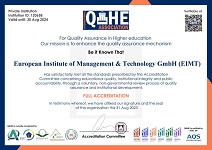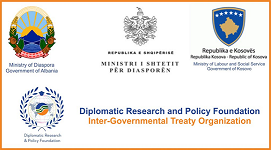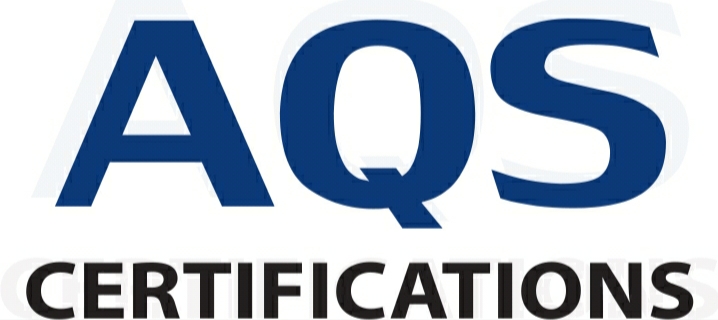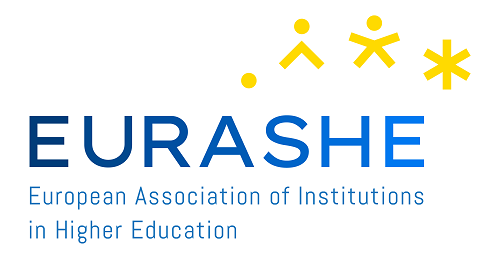Bachelor of Business Administration
- Home
- Bachelor of Business Administration
Accreditations
Accredited by major accrediting bodies.
Alumni Network
A strong network of 1000+ alumni worldwide.
Scholarships
Upto 30% of the total tuition fees available
International Students
From 20+ Countries
Programme Highlights

-
 36 Months online Program.
36 Months online Program. -
 Specially Designed for Working Professionals
Specially Designed for Working Professionals -
 International Networking Opportunities.
International Networking Opportunities. -
 Highly Qualified Industry Experienced Faculties.
Highly Qualified Industry Experienced Faculties. -
 Ample no. of specializations to choose from.
Ample no. of specializations to choose from. -
 Act more decisively and lead more persuasively.
Act more decisively and lead more persuasively. -
 Provide practical orientation to management theory.
Provide practical orientation to management theory. -
 Strengthen your business and leadership skills.
Strengthen your business and leadership skills. -
 Build a powerful network of business professionals.
Build a powerful network of business professionals.
Get FREE 1:1 Counselling

Bachelor of Business Administration (BBA)
We all know the feeling of being able to do something and not having enough time. This is a problem that many people have, but it doesn't need to be! With our Online Accelerated Bachelor's in Business Management program at EIMT, you can get an opportunity for success without ever leaving home or going out into public spaces again. Everything will be in online mode.
This unique online accelerated bachelor program provides a kind opportunity to study by using EIMT's top-notch learning platform. The course has dedicated leaders, who provide high-quality education and accelerate your progress with industry-leading certifications. The program has passed many quality certifications and has self-paced options for those looking at embarking on their journey into business management! EIMT is known around the world for its low fee structures and ease of accessing information which has made it extremely popular among students studying internationally.
The program concludes with the submission of a project on a business-related topic of the student's choice. Students who complete the program receive a Bachelor's in Business Administration degree from the EIMT. We use an innovative approach to team e-learning, as we believe this approach reflects today's workplace. The European Institute of Management & Technology's Bachelor's in Business Administration is a program that will open doors to international career opportunities by preparing students for the global business world.
BBA Key Learning Outcomes
- Students will demonstrate their knowledge of business management principles.
- Students will demonstrate a high level of overall morale.
- Discover the latest business and industry trends.
- Students will demonstrate strong civic engagement and good behavior in their community.
- Provide practical orientation to management theory.
- Acquire a collaborative mindset.
-
BACHELOR OF BUSINESS ADMINISTRATION
The Online Accelerated Bachelor's in Business Administration (BBA) offers an opportunity for those who want more flexibility with their studies while still achieving this important milestone of earning business administration skills coveted within today's corporate world or start-up environment.
Bachelor of Business Administration
- Eligibility: Senior Secondary Schooling
- Duration: 36 Months
- Enrollment: Being online - Throughout the Year
Important Information Regarding BBA Program
Program Delivery



Professional Professors
Academic Qualifications:
Learners should be in possession of a minimum EQF Level 5 full qualification. OR Be in possession of matriculation certificate (2 A-Levels & 3 Intermediate) or equivalent.
-
Learners must have a thorough command of written and spoken English. One of the following pieces of evidence is compulsory.
Applicants only need their degree certificate and transcripts if their degree is from a university located in UK, USA, Canada, Australia, New Zealand, or South Africa.
-
Where English is not the first language, applicants may need to provide the minimum English qualification IELTS 5.5 (with no less than 5.0 in each component).
-
Alternatively, Learners can prove their knowledge of English by having a degree that was taught or researched in English. During such a degree, all tutorials, supervision, and assessment should have been conducted in English. This degree must be academic. Applicants cannot use a vocational degree as proof.
-
Other substantial evidence of English Proficiency may be considered.
-
Applicants may be required to undertake a Pre-Sessional English Programme at additional cost to ensure that they have a standard of English appropriate to this level of study. If applicants do not pass this course, they will not be permitted to study on this programme.
Application Go Through:
Applications are only accepted online. Once the application form is received, our team looks after the past performance and future potential and will contact you accordingly.
What is Next?
The Curriculum
Modules during your first year
-
Introduction to Business - 4 ECTS
Introduction to Business covers the scope and methodology of introductory businesses. The course provides detailed information on central topics such as customer satisfaction, ethics, marketing, global business and change management. Introduction to Business includes hundreds of current business examples from various industries and geographies, which reflect a wide variety of people. The result is a correct system for the theory and application of business concepts, paying attention to the knowledge and skills necessary for the success of students in this course and beyond.
-
Business English - 2 ECTS
This course aims to improve your business English skills by developing your speaking and reading skills, as well as your understanding of tone, style and knowledge of communication methods. We will also explain how these language skills can improve audience research, business terminology and basic business communication techniques. It is often referred to the skills that are studied in this and are necessary to complement the teaching of communication, writing and culture in this design.
-
Introduction to Finance - 4 ECTS
This specialization provides an introduction to business finance and accounting, with an emphasis on their application in a variety of global contexts covering personal finance, business decisions, investment and how accounting principles and incentives How management affects the financial reporting process. It starts with concepts and applications such as time value of money, return on investment risk, pension funds, mortgages, car loans, asset prices, and many others. The specialty uses Excel to make the experience more hands-on and help students understand concepts immediately. By increasing the cost of capital and making financial decisions with the elements of the basic financial system, the system provides a solid foundation in corporate finance.
-
Introduction to Marketing - 4 ECTS
This course covers three important marketing topics: branding, customer centrality, and go-to-market strategy. You will learn the basic principles of Branding: equity is one of the main factors for building customer loyalty in a dynamic world where new initiatives are constantly emerging. Customer centricity: not the same as customer service, customer centricity starts with customer focus and need-grouping. Go-to-market strategy: understand the drivers that affect customers and see how these factors can be applied before investing.
-
Managerial Statistics - 4 ECTS
Managerial statistics covers different qualitative and sampling distribution methods. The main topics that are covered in this module are Quantitative methods, Sampling and sampling distributions, Estimation, Testing hypothesis, Chi-square and analysis of variance, Regression and correlation, Non parametric methods and time series and forecasting etc.
-
Communication Skills - 2 ECTS
Learn how to communicate effectively in the workplace and achieve your goals. Taught by award-winning Wharton professor and best-selling author Maurice Schweitzer, Improving Communication Skills is a comprehensive course designed to give you both the tools you need to improve your communication skills, and the best strategies for Good luck using them for your benefit. You will learn how to find out if someone is lying (and how to react if they are), how to build trust, the best way of communication for negotiations and how to apologize. You will also learn when to cooperate and when to compete, how to create a persuasive message, ask thoughtful questions, listen carefully, and choose the right technique (face-to-face communication in person, video conference, phone call, or email) for your posts.
-
Management Information Systems - 4 ECTS
Explore Content
-
Managing Accounting Costing And Budgeting - 4 ECTS
In this module, you will learn about Analogous Estimating, Bottom-up estimating, Parametric estimating, Project Budget Planning, Cost performance baseline, Project funding requirements, Project document updates, Plan Quality, Quality Assurance, Quality Control etc
-
Mathematical Tools For Business - 4 ECTS
Business Math is designed to introduce the mathematical skills necessary to understand, analyze and solve mathematical problems encountered in business and finance, as well as in making investment decisions. There is no prerequisite for this module; However, students should be able to perform basic math operations – addition, subtraction, multiplication and division – easily and have a good understanding of fractions, algebraic functions and some mathematical principles.
-
Economics - 4 ECTS
The purpose of this course is twofold. First, to help you understand the various economic theories, related to the important tradition of economic theory, and the basic economic theory derived from these theories. Second, to enable you to perform some basic economic calculations that are important in economic life, such as calculating the inflation rate, and economic forecasts, such as predicting the gross profit from trade for partners two businesses, and in the economic debate, as. and calculating the maximization of utility in given market and budget.
-
Commercial Correspondence - 2 ECTS
To give awareness about and to help develop the personality of the students. To provide an overview of Prerequisites to Business Communication. To put in use the basic mechanics of Grammar. To provide an outline to effective Organizational Communication. To underline the nuances of Business communication. To impart the correct practices of the strategies of Effective Business writing. -
Total Quality Management - 4 ECTS
TQM can be summarized as a management system for a customer-focused organization that involves all employees in continual improvement. In this module, you will learn about strategy, data, and effective communications to integrate the quality discipline into the culture and activities of the organization. Principles of TQM, Benefits of TQM, How to implement TQM, History & evolution, Deming’s 14 points for TQM etc.
-
Sales Management - 4 ECTS
Sales management is the process of hiring, training and motivating sales staff, coordinating operations across the sales department and implementing a cohesive sales strategy that drives business revenues. In this module, you will learn about sales management process, successful sales management techniques, sales management system, benefits, advanced sales management tools, forecasting sales and setting sales goals etc.
-
Basic Italian - 2 ECTS
In this module, you will learn about Introduction, List of Signs and Abbreviations, Nouns; Gender and Number, Definite and Indefinite Articles, Adjectives; Possessive and Demonstrative Pronouns, The Present Tense of essere and avere, The Present Tense of Regular, Adverbs, Prepositions, The Present Perfect Tense, Direct and Indirect Object Pronouns, Relative Pronouns, The Imperative etc.
-
Basic Chinese - 2 ECTS
In this module, you will learn about Self-Introduction Chinese Characters Countries & Nationalities Personal Pronouns My / Your / His / Her Greetings in Chinese Useful Daily Expressions Date and Birthday Have Vs. Don’t Have This and That Ask which Ask and answer price Like, eat and drink etc.
-
Business Law - 4 ECTS
This course will introduce you to the rules and regulations that managers must follow when doing business. Laws and regulations almost always shape corporate decision-making processes: banks can’t pay the interest they want to charge; This rate is appropriate. Car manufacturers must install equipment and develop new technologies to comply with regulations aimed at reducing pollution. At the end of this course, you will have a clear understanding of the legal and ethical principles of business operations.
-
Leadership, Motivation And Group Dynamics - 4 ECTS
In fact, social science students are given the necessary tools to solve organizational problems that affect the behavior of individuals, groups and organization. Prepare managers to understand how to organize in the best way raise the company’s capital, manage social networks and connections,and make strategic changes. The course is designed to help you develop both intellectual and emotional understanding of the many aspects of personal and group change.
-
Internship - 2 ECTS
Internship report needs to be submitted for the project/business you have worked upon during/after your first year.
Modules during your second year
-
Advanced Accounting - 4 ECTS
In this module, you will learn about advanced Financial Accountancy, Auditing, Accounting and Information System, Advanced Financial Management, Financial Markets, Corporate Financial Policy, and Financial Service, Auditing Offices, Budget Analysis, Corporate Financing, Financial Sector, International Finance, Management of Accounting Offices, Real Estate Finances, Taxation Departments etc.
-
Venture Capital And Private Equity - 4 ECTS
The course focuses on the analysis of personal finance and investment. During the program, students will gain a deep understanding of the process behind the creation and / or development of a business and the financial support it can receive from the financial system through investment finance. The course tries to find out how special financial intermediaries (called private equity investors) money from joint-stock companies in different stages of their life cycle, from the very beginning (beginning and early stage) and a more mature phase. i.e. expansion, maturity, age, etc.) or stay in chaos and decline. Private equity (known as equity capital when the business is at the beginning of its life cycle) performs various functions, such as research, analysis, contracting, valuation and investment in the sense of investors.
-
MIS: Decision Science I - 4 ECTS
The Management Information Systems Science 1 module is designed to train students in business and technical foundations. Emphasis is placed on developing international and public leaders with strong analytical, problem-solving and communication skills. The knowledge management program provides students with a broad business foundation and a strong foundation for careers in software engineering, project management, web development and programming, data analysis, and online security.
-
Human Resource Management - 4 ECTS
This module provides a solid introduction to the core principles, policies and practices of human resource management. The specialty begins with a foundational course that discusses alternative approaches to human resource management, providing an overview of the legal context in which employees are hired, fired, compensated and managed, and describe the various factors used to motivate people to work. The remaining three courses cover three important areas that all managers should understand: hiring, evaluating their performance, and rewarding them. In the course, accessible scientific methods are adopted in order to make the best research and useful recommendations, but it is presented in a simple way and applied.
-
Principles of Marketing - 4 ECTS
The main objectives of this course are to enhance students’ knowledge of marketing fundamentals and develop practical knowledge and application of marketing concepts. After completing this course, students will be able to understand the importance and importance of marketing in the current business environment, analyze the importance and importance of market segmentation, targeting and organization, understand the steps involved in creating a marketing plan and be aware of recent trends in the market.
-
Money And Banking Business - 4 ECTS
In this module, you will learn about international Banking, money Functions, kinds of money, kinds of deposits and measures of money supply; Demand for money: classical, neo classical, Keynesian, Baumol’s and Tobins; Supply of money: H theory of money supply, money multiplier process, determinants of money multiplier, Monetary Policy, Indian Banking System, Commercial banks, Reserve Bank of India: establishment of RBI; Organizational structure of RBI; objectives of RBI; functions of RBI, Monetary Policy of RBI; achievements of RBI, failures of RBI.
-
Consumer Behavior - 4 ECTS
In this module, you will learn about Introduction to Consumer Behaviour, Factors affecting Consumer Behaviour, Consumer Decision Making Process , Consumer Motivation & Personality, Marketing Communications, Decision Making Models, Consumer Rights. Upon completion you will be able to explain the concept of customer behavior and describe the internal customer research process, campaign, analyze in detail the factors that influence customer behavior, analyze the customer’s decision making process, examine the impact of consumer motivation on attitudes and buying behavior and provide basic knowledge on consumer protection rights.
-
International Economics - 4 ECTS
In this module, you will learn about Role of trade, features and types of trade, theory of absolute cost advantage, theory of Comparative Cost advantage, Terms of Trade, Foreign Exchange : Features and Significance, Balance of Trade, Balance of payments, Foreign Trade : Size, Structure and direction, Balance of Payments in India, MNCs, FEMA, Exim Banks etc.
-
MIS: Decision Science II - 4 ECTS
In this module, you will learn about Meaning and use of MIS, System View of Business, Process of MIS, Development of MIS in organization, Planning, Implementation and Management Control, Information system, fundamentals of Data Processing, Textbook Computer Operations, Information Systems, Applications of Computer Systems, Speed Graphics, conversion of manual systems to computerized systems, Computer system software, software, communication modem, management decision making, characteristics and resources of Decision support systems, system Design Overview, Input/Output Design, form management, file and database management, data management, file management, program management, management and security. -
Principles of Finance - 4 ECTS
In this module, you will learn about finance nature and scope, role of finance manager, shared, debentures, public deposits, bank borrows, divided policy, bonus shares, retained earnings, factors affecting capital stucture, captialisation, financial planning, forecasting, venture capital, leasing etc.
-
Intercultural Management - 4 ECTS
The module “Intercultural Management” includes methods of intercultural comparative management and communication system, emphasizing (and useful) local culture and the first thing that affects human behavior, collective and organizational. The general purpose of the module is describe the theory and practice of management in today’s global environment. Finally the students will be able to understand how to approach management in different parts of the world.
-
Leadership and Change Management - 4 ECTS
In this module, you will learn about Leadership, role and functions of a Leader, Trait approach, Leadership Behaviour and styles, Nature of organizational change, Predictable Change, Diagnosing change situation, Influences on structure, Organizational structure and change, Power and conflict in times of change, Management and leadership, Leadership in times of change. Cultural factors influencing leadership practice etc.
-
Internship - 6 ECTS
A complete detailed Internship report needs to be submitted for the project/business you have worked upon during/after your second year.
-
Minor Project: 4 ECTS
Student need to submit one minor project based on the internship and course work.
Modules during your third year
-
International Finance - 4 ECTS
This module focuses on providing knowledge and skills in history, evolution, growth and development of international trade, reasons for the existence of different countries and their strategies, Government policies and procedures affecting international trade. The module is designed to provide good knowledge of international business activities through lectures, seminars, workshops and group discussions, etc. to make learning easy.
-
Strategic Marketing - 4 ECTS
The focus of this module is strategic marketing analysis for marketing decision making and marketing planning, combining the knowledge gained with other marketing topics and business administration subjects (management, finance and accounting). Students develop analytical skills, get a strategic view of the market and learn to understand it as an important part an important part of the company’s overall strategy. Therefore, the module focuses on long-term planning and strategic planning of the business and the role of marketing in this.
-
Information Systems - 4 ECTS
This module trains students in the planning, analysis, design and management of information systems. In addition to this, the module also provides training in software, database management and hardware management for organizations and their departments. The module aims to develop social and global leaders with problem solving, research and communication skills.
-
Foreign Language - 2 ECTS
You can select one out of several foreign langauges like German, French, Chinese, Arabic, Hindi etc.
-
Financial Planning and Budgeting - 4 ECTS
The primary objective of this module it to introduces participants to principles, tools and methods of corporate financial management and changes, challenges and competition in the global business environment. In this module, you will learn about financial planning and forecasting, Capital Structure Planning – Financing Decision, Investment Decisions – Time Value of Money, Working Capital Management and Dividend Decision, inventory management etc.
-
Organizational Behavior - 4 ECTS
The primary objective of this module is to introduce students to the basic principles of Organizational Behavior such as working with people, the nature of organizations, communication, leadership inspire people, Help students develop a conceptual understanding of OB concepts, allow students to think in OB skills . In this module, you will learn about Introduction to Organizational Behavior, Motivation and Leadership, Groups and Teams etc.
-
Strategic Leadership and Change - 4 ECTS
The module is designed to create the foundations of knowledge and personal capability requisite to lifelong professional learning and career-long success in business leadership. In this module, you will learn Organisational Leadership, Emerging Leadership Behaviour, Leadership Motivation, Culture, Changing organisational Cultural, Strategic Leadership, Developing creative thinking , Basics of Change Management, Mapping change etc. -
Business in a World Economy - 4 ECTS
The module is designed to understand the characteristics of international business and recent developments in the India’s foreign trade. In this module, you will learn Characteristics of international business, International marketing decision, – Market mixed decision, International trade liberalization, Indian foreign trade, Export finance, Procedure for export of goods, Exports joint ventures etc.
-
Internship - 6 ECTS
A complete detailed Internship report needs to be submitted for the project/business you have worked upon during/after your second year.
-
Project/Thesis - 12 ECTS
Student need to submit one major project based on the internship and course work.
Global Management
-
Negotiation Skills - 4 ECTS
This module provides real-world tools for the planning process from pre-negotiation planning to post-negotiation evaluation and focuses on creating mutual benefits, increasing profits and managing conflicts & it provides a stimulating development environment.
-
Competitive Strategy - 4 ECTS
The module emphasizes the value of the system. In addition to familiarizing students with new topics, students are expected to connect with apply their knowledge to make strategic decisions in the group. The Strategic management system is designed to evaluate the vision, goals of the organization, research principles, methods and types of organizational structure in the environment, consider the concept and practice of designing and implementing systems such as governance and business ethics for the development of effective leadership.
-
Cases in Marketing - 4 ECTS
This course walks you through a variety of business case studies of real businesses using the Harvard Business Case method.
International Marketing Management
-
Consumer Behavior - 4 ECTS
This course introduces the theory of consumer behavior and relates it to the practice of marketing. It will bring important elements from psychology, anthropology, social science and behavior into the process of consumer decision making and key factors influencing it.
-
Logistic Management - 4 ECTS
You will learn from scratch how to run a business, gaining principles that you can apply to your own business. The course focuses on ownership philosophy, business principles, and structures that can be applied to create a successful business. Special topics include job classification and management structure. -
Services Marketing - 4 ECTS
The theoretical foundations and practical applications of the labor market are explored. Topics include the nature of work, marketing strategies and the marketing mix for work, work experience, human factors and work quality. This course focuses on the key elements (culture, communication, strategy, operations, people, and technology) that salespeople must combine to establish and maintain excellent service and provide customer value. While the course examines the management aspects of service businesses and the operational aspects of manufacturing businesses, the main topic is how to create customer value. Topics include service product models, customer behavior and service metrics, service quality and satisfaction, service plan development, customer service management, service cap planning, service recovery and service technology.
Entrepreneurship
-
Family Business Management - 4 ECTS
Family businesses face unique challenges. The Family Business Challenge is designed to help you solve global problems as they affect your own business and your family. It combines rigorous learning with practical industry.
-
Cases In Entrepreneurship - 4 ECTS
This course walks you through a variety of business case studies of real businesses using the Harvard Business Case methodology.
-
Mergers And Acquisitions - 4 ECTS
The main objective of this course is to develop a comprehensive understanding of mergers and acquisitions (M & A) from the perspective of a business executive. This process will cover everything Key elements of the acquisition process, including corporate strategy, pricing, due diligence, financing decisions, contractual arrangements, restructuring options, security and repossession and integration. You will also use real-world case studies and tools to develop the skills necessary to support and evaluate the objectives for the proposed business.
Finance
-
Contemporary Corporate Finance - 4 ECTS
The purpose of this course is to help students by developing their skills in some important areas of corporate finance. In particular, students will learn the principles of the financial market, how to value bonds and common stocks, the principles of financial planning.
-
Strategic Management - 4 ECTS
This course introduces students to the topic of strategy and helps them understand the overall impact of internal and external influences on business. The main objective of this course is to provide the student with a comprehensive understanding of the practice of strategic management and its real importance in today’s multinational companies. -
Cost Controlling & Financial Planning - 4 ECTS
The purpose of this course is to help students acquire the skills and correct use of cost accounting to support business decisions. In particular, students will learn how to work with cost planning, assign costs, develop business cases, calculate process/product costs, and project costing systems. Finally, students will learn the basics of budgeting/budgeting and the principles of variance analysis.
Accreditations
Committed to Quality, Dedicated to You.
Frequently Asked Questions
-
How much time should I spend on coursework each week?
Expect approximately 16 hours of work per week. This may include lecture videos, readings, discussions and assessments.
-
Is BBA a good course?
BBA course can be just as good as an MBA. Besides, doing a BBA course, you are opening up opportunities of learning the world of business and also being job-ready at the same time.
-
Can an Arts student do a BBA course?
Yes, you can. Whether you have done your school with arts or humanities or science, you are free to choose the BBA course.
-
How many credit hours are required to complete the program?
Students must successfully complete a minimum of 180 credits total to satisfy graduation requirements.
-
How long will it take to complete the program?
This program is designed so that the student can complete the degree program at their own pace. Courses are offered in multiple semesters. Students should work closely with their academic advisers to create a plan based on their targeted graduation date, and to ensure all requirements are met.
-
When can I begin taking classes?
EIMT admits for the multiple batches. Deadlines and admission requirements will vary depending on whether you are considered a Fresher, Transfer, 2nd Bachelor’s, International, or Returning Student. As part of the admissions process, you will be required to submit official documents (these vary depending on your student classification).
-
Will I be able to use my work experience or professional certifications to satisfy coursework or waive credits?
EIMT does not grant credit or waive coursework using work experience or professional/industry/trade certifications.
-
Are you providing any language course with BBA?
Yes, we offer 2-3 language program with BBA.
-
I want to know about placement !!
We have tie-ups with ample no. of corporate companies and banks for providing placement to BBA students across the globe.
-
Are the lectures pre-recorded or are there any live lectures?
All online courses are live online not pre-recorded session. Beside that, there are often live workshops/masterclasses organized.
-
I’m worried about the time zone difference; how will this work for live lectures?
Live sessions will take place according on different time zones.






